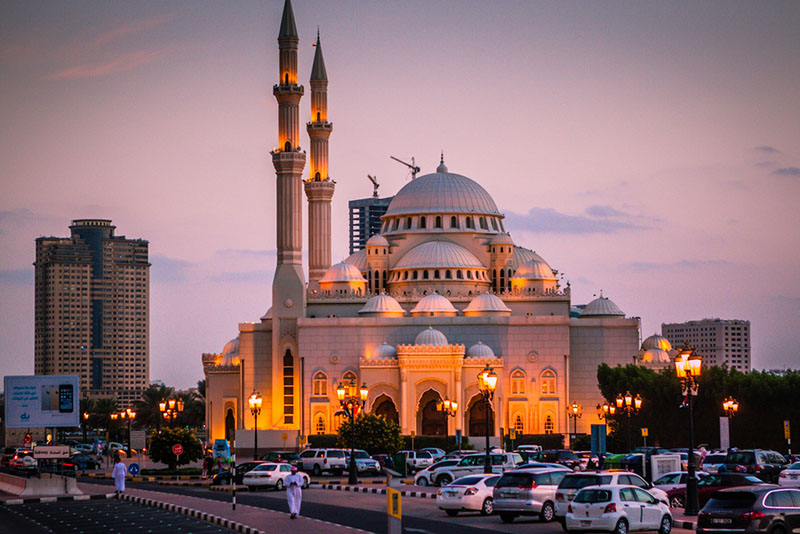Ramadan is an important time for Muslims around the world. During the ninth month of the Islamic calendar, the first parts of the Quran were revealed to Prophet Muhammad (PBUH). In Dubai, you can see how the rhythm of the city changes as people celebrate the holy month through prayers, fasting and gatherings.
The specific dates of Ramadan change every year because it is based on the cycles of the moon. However, if you are lucky enough to be in Dubai during this particular period, you will be able to discover another side of the city. To better understand the rituals of Ramadan, here is what a typical day of the holy month entails:

Suhoor: the morning meal
Prima All he dawn, Muslims wake up in a sleepy camaraderie to pray together and participate in suhoor in preparation for a day of fasting that begins with the morning adhaan, or "call to prayer." During the week, Suhoor is usually celebrated at home with family, while on weekends city dwellers go to tents or special restaurants to recharge their batteries before dawn and Fajr prayers. Restaurants in the city offer suhoor dishes suitable for both Muslims and non-Muslims. While some last until just before dawn, many take place between 9 p.m. and 1 am
Siyam: fasting
Siyam, which means "to abstain", are the times of fasting. During Ramadan, Muslims must refrain from eating, drinking and smoking between sunrise and sunset. In addition to exercising physical restraint, devotees must also refrain from evil thoughts, actions, and words. Fasting is a way to cleanse the body and soul of impurities and focus the mind on worship, atonement, and gratitude. Fasting also teaches you to put yourself in the shoes of those less fortunate and encourages participation in charitable activities. At home, the kitchen prepares at the slow pace of Iftar.
Iftar: breaking the fast
At sunset (Maghrebi prayer), a pause is imposed on the city until the roar of the the cannons announce the end of the fast and the proclamation of Iftar. Dubai residents join billions of Muslims around the world who traditionally break their fast, as Prophet Muhammad (PBUH) did, with a glass of water and some dates. The houses value tradition and offer the best hospitality, while many hotels and restaurants are committed to serving gastronomic banquets. At dusk, glittering arabesque decorations shine throughout the city during the holy month.
Taraweeh: Prayers
According to Islamic tradition, it is the Im During the month of Ramadan, Allah revealed the first verses of the Quran to Prophet Muhammad (PBUH). The night of this revelation, known as Laylat Al Qadr, the Night of Decree, falls in the last ten days of the Holy Month and is the time when prayers are considered equivalent to 1,000 months of worship.
Isha (night prayers) and Taraweeh (long night prayers during Ramadan) are very important for Muslims during Ramadan. To commemorate the revelation of the Quran, Muslims read one-thirtieth of the holy book every day during Ramadan. Thus, at the end of the month, the entire Quran will have been read and recited.
Prayers during the holy month are divided into three phases or Ashra. The first ten days reflect mercy, the last ten days forgiveness, and the last ten days protection from condemnation.
Read More: TOP 7 THINGS TO DO IN AL FAHIDI NEIGHBORHOOD IN DUBAI THAT YOU SHOULD DEFINITELY VISIT
Zakat: Charity
One of the five pillars of Islam, charity is especially important during the holidays of Ramadan and Eid. The government and major organizations are carrying out special initiatives and people are doing their part to help the less fortunate.
What should tourists do? Be careful during Ramadan?< /div >
During Ramadan, Muslims do not eat, drink or smoke between sunrise and sunset, but this does not apply to non-Muslims or tourists who are not fasting. However, there are some things you should keep in mind when visiting Dubai during Ramadan.
Although there is no obligation for non-Muslims to eat in Dubai and to refrain from drinking When you are in public during the day, you may do so out of respect for those who are fasting. Most restaurants remain open and serving food as normal, so there's no shortage of places to grab a snack. And children can eat and drink anywhere during the day.
Visitors should also expect that the pace of life in Dubai is changing. During the holy month, most companies will work fewer hours to allow more time for family and prayer. Therefore, you should check the opening hours and try to avoid the crowds in the late afternoon.
Part of fasting is recognizing that, although it is a challenge, it is also something which Muslims are happy to oblige. Many Muslims look forward to Ramadan and the opportunity to fast and give back to the community, making this holy month the highlight of the year.
Ramadan is the day the entire community comes together to improve. Expect family gatherings and evening social gatherings in parks, markets and shopping malls, with an incredible variety of iftars to try.
Try it now, whether you're fasting or helping the poor, you can participate in the Holy Month of Dubai by adopting its customs and wishing your friends "Ramadan Mubarak".

